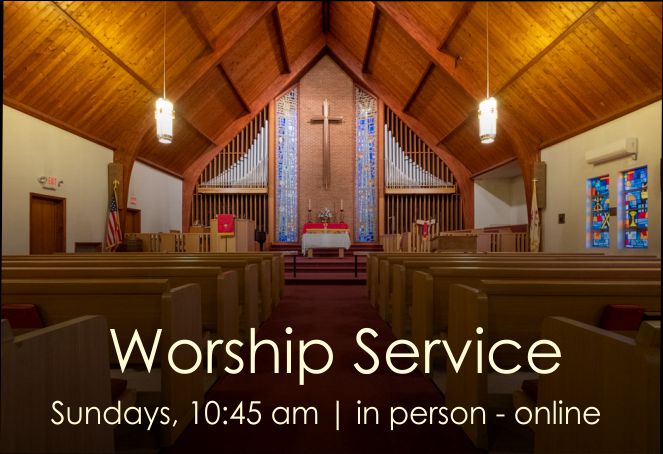Don’t call us, we will call you

I recently came across a trend on social media in which content creators complain about the practice of some companies to use the sentence “don’t call us… We’ll call you,” as a euphemism for “you are not continuing the process,” when a job interview goes bad.
I have been there, and it does not feel good. It feels like failure and defeat when you are the target of those words. Mostly, if you really want to fill the position (or any position!)
It looks like the same happened to Simon, Andrew, James, and John in the story that the Gospel of Mark tells us in chapter 1:14-20. I will use the New International version.
After John was put in prison, Jesus went into Galilee, proclaiming the good news of God. “The time has come,” he said. “The kingdom of God has come near. Repent and believe the good news!”
As Jesus walked beside the Sea of Galilee, he saw Simon and his brother Andrew casting a net into the lake, for they were fishermen. “Come, follow me,” Jesus said, “and I will send you out to fish for people.” At once they left their nets and followed him.
When he had gone a little farther, he saw James son of Zebedee and his brother John in a boat, preparing their nets. Without delay he called them, and they left their father Zebedee in the boat with the hired men and followed him.”
As the years have passed, I have discovered that it is very important to understand the Gospel of Jesus as a whole, if we want to catch the spirit of the message the authors wanted, but also needed, to transmit to their readers in their time. Every single thing here matters, every single detail is important and it is not casual.
According to the biblical texts we have available, it looks like Jesus chose his words carefully, he left nothing to chance. Every word Jesus said or every act he did is interconnected with each other.
We see people working here. They were casting their nets.
Now, to understand why this is important, we need to be aware that the Bible is the materialization of an effort to keep the people of Israel together. Over time, they were displaced all over the earth throughout the exile, and the moment this story describes, they were conquered by Rome. That is why the Hebrew Bible was a fundamental part of their educational system over the years. They also had some math, Greeks, and philosophy.
But the Hebrew Bible Matters.
After kids learned to read, they were called to memorize the Torah (Genesis, Exodus, Leviticus, Numbers and Deuteronomy). The word Torah means: Teachings, instructions, the way. Remember, nothing is casual, and Jesus later refers to himself as “the way, the truth, and the life.” These male kidswere maybe under their 10, when they memorized the five first books of the Bible. Ten years old could sound like a big deal. And indeed it is, but life expectancy then was not that high as it is nowadays.
Now, if they, after memorizing the Torah, accomplish the Scribe of Master expectations, they could keep moving forward to the next academic step. Otherwise, at this point, they started to learn their family (parents) business or job like carpentry, fishing, pottery, etcetera.
Those kids who, because of their excellence were called to memorize the Tanaj (The rest of the Hebrew Bible), should be done by their 14 or 15’s. Their biggest honor would be to become a Rabbi, Master, or Scribe. They could discuss the Hebrew Bible, have their own interpretations, participate in debates, teach the Scriptures, and be part of the political, academic, and religious Tradition of their nation.
Then is when they had to request a Rabbi for them to be his disciples. Being a disciple means being exactly as the Rabbi is. After some interviews, in which the Rabbi asked some questions, the Rabbi said: Don’t call me… I’ll call you.
If the kid got it, he was invited to become part of the Rabbi cohort, when this Master called him with the phrase, “follow me”. However, if this child was not selected as one of the privileged, he had to start to learn his family’s (parents) business and job.
Perhaps at this point you already know where I am going in reference to the biblical text we are reading today.
We see people working here. They were casting their nets.
These apostles were doing what their family used to do.
Fishing.
They were too old to be memorizing the Hebrew Bible.
They were not enough to be part of a Rabbi cohort.
They failed enough to become part of the elite team.
Does this sound familiar to you?
Nevertheless, Jesus was the one who came to their place of defeat to call them with the sentence, “follow me.”
Never is too late. No one is so unsuccessful that Jesus does not come to call. This call is for you and for me today. Our time has not passed yet.
This is an invitation from Jesus to not give up. This is one more opportunity to see the kingdom of God coming down from heaven to our life, our home, our relationships, our situations, our workplaces, our congregation.
This is an invitation in the midst of troubling times, this is an invitation to transform, to seek justice, to seek freedom. This is an invitation which was extended after an event: “After John was put in prison” Mark 1:14
May God help us to hear and answer Jesus’ call to become his disciples and to make disciples for the transformation of the world. Amen
Warmly,
Pastor David Gaitan









